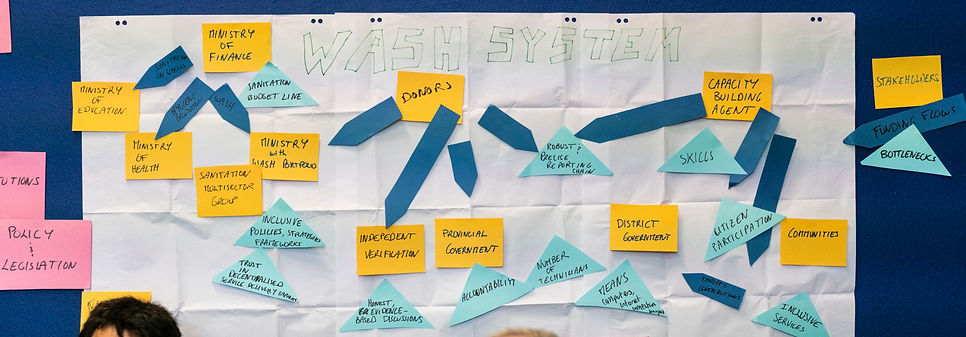

In these laboratories of change small teams will take part in a structured collaboration to innovate and prototype exciting solutions.
Over the course of All Systems Connect 2023, ideas from our design sprint participants will be critiqued, validated and reinforced. By the end of the symposium, three concrete outcomes to drive systems change will be presented be taken forward by one or more of the participating stakeholders.
Our Sprinters
Meet some of the people leading the MAKE CHANGE sprints.
Learn more about our sprints
Our Sprint process

What is a design sprint?
Design sprints are structured intensive processes to redefine and solve complex problems as a team. The group will refine an initially long list of potential solutions into a single idea that will be elaborated and tested with external stakeholders during the three days of the design sprint.
A design sprint is perfect for coming up with new, innovative game-changing ideas and testing them quickly in a cost-effective and risk-free way.
At the end of the sprint, the idea will be either validated, rejected, or sent back to the sprinters for reworking.
What is the end result of the MAKE CHANGE Sprints?
MAKE CHANGE Sprints at All Systems Connect will develop concrete project ideas, campaigns, product ideas, or roadmaps for action. They could be policy-oriented, programmatic, influencing-focused, or technological.
For example, a solution could be a new idea for public engagement, or a specific modality for channelling finance. We won’t know until we’ve sprinted!
Who participates in a design sprint?
The sprinters will be a mix of (6-10) diverse experts from within and beyond the water, sanitation and hygiene sector, hand-picked for their diverse perspectives that represent the key stakeholders involved in the problem and its solutions. One or two ‘quasi external’ perspectives can also add richness by bringing new ways of viewing the challenge context.
Facilitated in collaboration with
ChangemakerXchange empowers a global community of over 1,000 of the world's leading young social and environmental changemakers. Through their Facilitators for Change initiative, they train civil society leaders in facilitation & community building skills and support with facilitation and agenda creation for social impact events.
UNLEASH is a global initiative committed to bringing youth together to share ideas, build networks and create innovative and scalable solutions to help reach the Sustainable Development Goals. Our mission is to accelerate positive change towards the SDGs by mobilizing young talented people in community leadership, problem-solving, and launching social and environmental solutions.


















